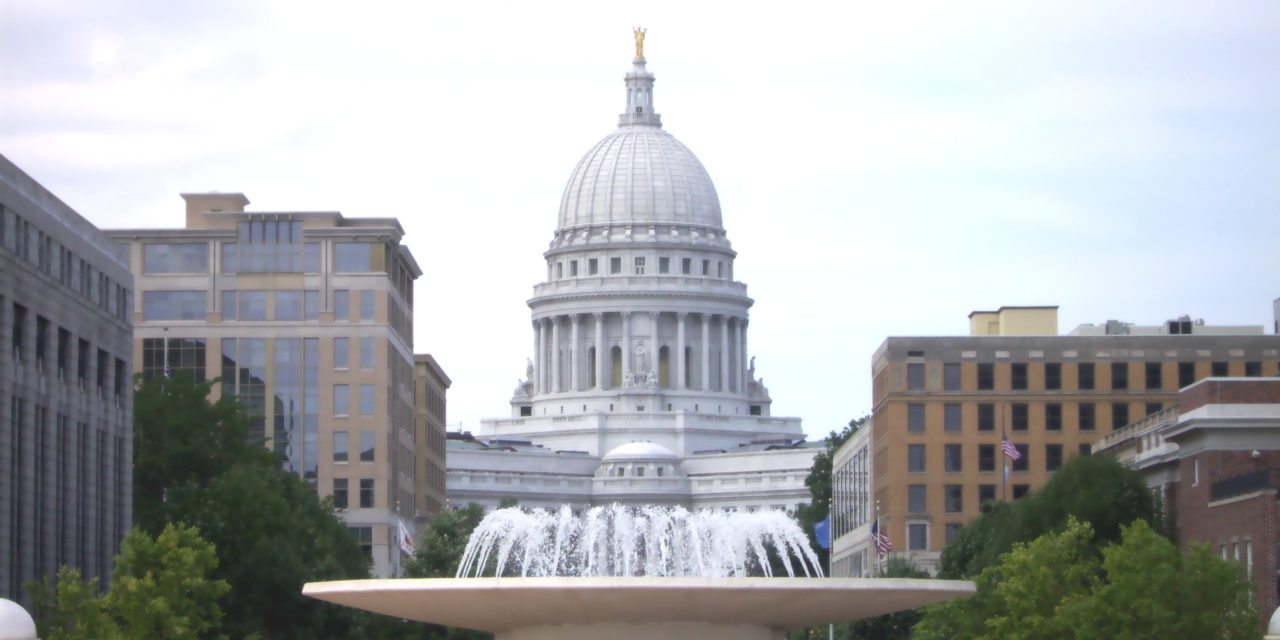
State Supreme Court strikes down Evers’ safer-at-home order

The Wisconsin Supreme Court struck down an extension of Gov. Tony Evers’ safer-at-home order Wednesday.
Chief Justice Patience Roggensack wrote that the order is “invalid and therefore, unenforceable.”
Conservative justices Rebecca Bradley, Daniel Kelly and Annette Ziegler sided with Roggensack in the 4-3 decision.
Brian Hagedorn, who previously served as Gov. Scott Walker’s chief legal counsel, joined with the court’s liberals Ann Walsh Bradley and Rebecca Dallet.
The justices declined to stay the order, as requested by Republican lawmakers who spearheaded the lawsuit. Therefore, the ruling takes effect immediately.
Evers lambasted Republican lawmakers Wednesday night, saying they have thrown the “state into chaos” by convincing justices on the Supreme Court to toss his order.
Meanwhile, GOP leaders urged the governor to work with them to develop rules in case COVID-19 “reoccurs in a more aggressive way.”
Evers said Wisconsin was doing well in addressing the pandemic, meeting five out of six of his gating criteria for reopening and leading the Midwest in having the fewest cases per capita.
“They have provided no plan,” Evers said of the Republican leaders. “There is no question among anybody that people are going to get sick.”
Evers noted that the Tavern League of Wisconsin told its members they can reopen immediately, which he said is happening across the state. He warned about the health and economic impacts.
Evers said they’re planning to do a scope statement to start the rulemaking process that will head to the Legislature Thursday.
“This isn’t going to be an overnight thing,” he said. “And in the meantime, we’re going to have 72 counties doing their own thing. We were in a good place. We are no longer.”
Ryan Nilsestuen, the governor’s chief legal counsel, said the decision doesn’t apply to local health officials. He predicted a “flurry of local health officials charting their own path.”
He also cited a footnote in the decision that says the ruling doesn’t apply to the part of the safer-at-home order that closed schools for the remainder of the school year.
Speaker Robin Vos, R-Rochester, and Senate Majority Leader Scott Fitzgerald, R-Juneau, said people can now visit loved ones and places of worship without fear of violating a state order.
And they said they believe business owners can safely reopen using guidelines supplied by the Wisconsin Economic Development Corporation.
“Wisconsin now joins multiple states that don’t have extensive ‘stay at home orders’ but can continue to follow good practices of social distancing, hand washing, hand sanitizer usage and telecommuting,” they said in a statement. “This order does not promote people to act in a way that they believe endangers their health.”
Several local governments are keeping the order in place. Dane County adopted the executive orders nearly verbatim.
Milwaukee Mayor Tom Barrett said the city’s stay-at-home order is still in effect and the 18 municipalities in suburban Milwaukee County and their 10 public health officials issued a joint statement early Thursday saying that bars and restaurants in the county continue to be closed and gatherings of more than nine people are still prohibited.
Racine County is extending its safer-at-home order until May 26. And Brown County is extending its order for another week.
DHS officials reported 291 more COVID-19 cases Wednesday, bringing the total to 10,902 cases. There have been 421 deaths, an increase of three from Tuesday.
The Department of Health Services on Wednesday identified 38 nursing homes with active COVID-19 investigations.
A single case of a resident or staff member testing positive at a nursing home can lead to a facility-wide public health investigation. Detecting a case in a nursing home indicates the provider is following proper procedures, using appropriate isolation and infection control practices, the agency said.
The list of facilities will be updated every Wednesday.





